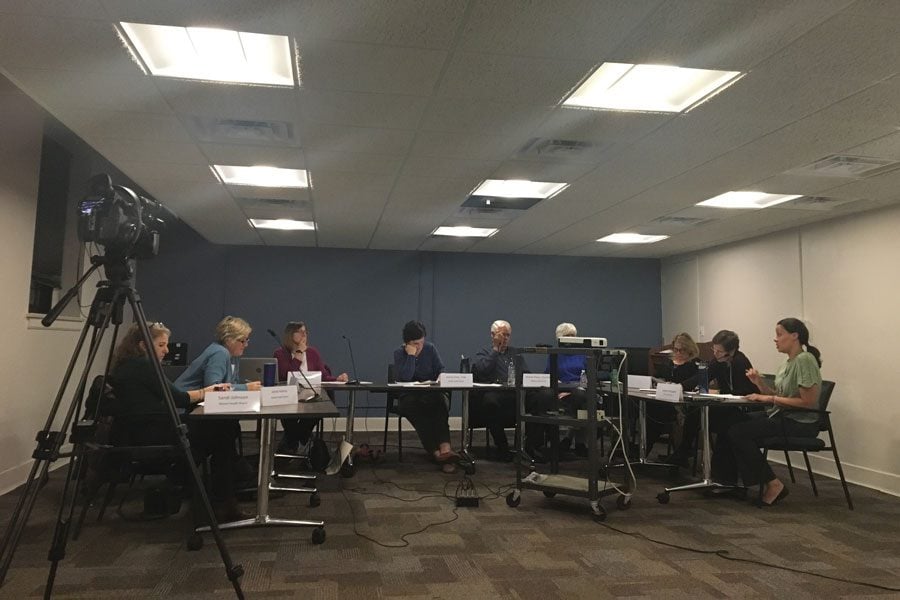Evanston Mental Health Board adjusts timelines amid pandemic
Cassidy Wang/The Daily Northwestern
Evanston’s Mental Health Board at a November 2018 meeting. Like other boards, commissions and committees in Evanston, the Mental Health Board is adjusting to cancelations and delays.
May 25, 2020
The coronavirus pandemic has forced Evanston’s many boards, commissions and committees to postpone meetings and alter timetables of action items. The Mental Health Board is no exception to wide-ranging cancelations caused by COVID-19.
The board makes recommendations on how to allocate funding to local agencies, said Jessica Wingader, the city’s grants and compliance specialist. Recommendations ultimately influence City Council, whose members approve agency funding.
Board members made allocation recommendations in February, and council approved them in March. Despite stay-at-home orders, agencies received first quarter payments, Wingader said.
Still, the coronavirus has shifted the timeline of action items. Chair Jessica Sales said the board is currently adjourning all meetings and business items due to COVID-19. Though Sales’ term will expire soon, she will likely serve beyond her term until members can safely elect a new chair and vice chair, Wingader said.
Meanwhile, mental health problems amid social isolation and loss have become a crisis of their own. According to an April Kaiser Family Foundation poll, 56 percent of Americans reported that stress related to the outbreak has led to at least one negative mental health effect. Among frontline health care workers and their families, 64 percent reported worsened mental health, as did 65 percent of those who had lost income.
In a typical year, board members are assigned liaison roles, periodically checking in on city-funded agencies. During these annual meetings, agency representatives inform board members on the status projects, and members come to know local organizers and groups. For now, COVID-19 has put these relationships on hold.
Internal delays have altered the role and responsibility of agencies, too. Board members have asked agencies to report the status of projects semi-annually rather than quarterly, Wingader said. Wingader added that shifting the reporting timeline has allowed city-funded agencies to focus on residents’ needs amid a pandemic.
“Agencies are really working hard to meet the changing needs of our community members,” she said. “Removing reporting requirements, taking things off the agency’s plate, frees up their time to focus on other things.”
As the pandemic unfolds, members are anticipating the board’s role to shift. Sales said agencies will report to the board their financial capacity to provide for residents. She anticipates board and citywide discussions about how to support “ongoing” needs with finite funds.
Board member Damita Cravens said COVID-19 will likely shape long-term board priorities, especially given mental health challenges many residents are facing.
“During this time, so many things have happened with the community dealing with mental health and resources in general,” Cravens said. “The community has to come together to think outside the box ways to get through this time. I would hope that things will look differently once we come out of the pandemic.”
Wingader said she hopes the board can meet in-person in August, when the funding cycle begins again. But like everything else, that goal remains uncertain.
“So much depends on the city budget, she said. “There’s just so many unknowns.”
Email: [email protected]
Twitter: @herscowitz


